Joshua and the Flow of Biblical History
Second U.S. edition copyright 2004 by The Francis A. Schaeffer
Foundation, Gryon, Switzerland
Published by Crossway
1300 Crescent Street
Wheaton, Illinois 60187
First United States edition, InterVarsity Press, 1975.
First British edition, Hodder and Stoughton, 1975.
Josua-Gott will retten (German), Brockhaus Verlag, Wuppertal; Haus derBibel, Geneva, 1977.
All rights reserved. No part of this publication may be reproduced, storedin a retrieval system, or transmitted in any form by any means, electronic,mechanical, photocopy, recording, or otherwise, without the prior permission of the publisher, except as provided by USA copyright law.
Unless otherwise designated, Scripture is taken from the King JamesVersion of the Bible.
Scripture verses marked ESV are taken from The Holy Bible, EnglishStandard Version. Copyright 2001 by Crossway Bibles, a division ofGood News Publishers. Used by permission. All rights reserved.
Scripture verses marked ASV are taken from The American StandardVersion of the Holy Bible.
Cover design: Josh Dennis
Cover photo: Corbis
First printing 2004
Printed in the United States of America
Schaeffer, Francis A. (Francis August)
Joshua and the flow of biblical history / Francis A. Schaeffer ; intro- duction by Udo W. Middelmann.2nd U.S. ed.
p. cm.
Includes bibliographical references.
ISBN 1-58134-520-8
1. Bible O.T. JoshuaCriticism, interpretation, etc. 2. Joshua
(Biblical figure) I. Title.
BS1295.52.S3 2004
222'.206dc22 2003017433
Crossway is a publishing ministry of Good News Publishers.
VP 14 13 12 11 10 09 08 07 06 05 04
15 14 13 12 11 10 9 8 7 6 5 4 3 2 1
JOSHUA
AND THE FLOW OF
BIBLICAL HISTORY
C ONTENTS
| 7 |
| 15 |
| 35 |
| 55 |
| 79 |
| 91 |
| 109 |
| 127 |
| 147 |
| 163 |
| 171 |
| 191 |
| 209 |
THE BOOKS OF
F RANCIS A. S CHAEFFER
PUBLISHED BY CROSSWAY BOOKS
BOOKS INCLUDED IN THE FIVE-VOLUME SET
THE COMPLETE WORKS OF FRANCIS A. SCHAEFFER
V OLUME ONE: A CHRISTIAN VIEW OF PHILOSOPHY AND CULTURE
Book One: The God Who Is There
Book Two: Escape from Reason
Book Three: He Is There and He Is Not Silent
Book Four: Back to Freedom and Dignity
V OLUME TWO: A CHRISTIAN VIEW OF THE BIBLE AS TRUTH
Book One: Genesis in Space and Time
Book Two: No Final Conflict
Book Three: Joshua and the Flow of Biblical History
Book Four: Basic Bible Studies
Book Five: Art and the Bible
V OLUME THREE: A CHRISTIAN VIEW OF SPIRITUALITY
Book One: No Little People
Book Two: True Spirituality
Book Three: The New Super-Spirituality
Book Four: Two Contents, Two Realities
V OLUME FOUR: A CHRISTIAN VIEW OF THE CHURCH
Book One: The Church at the End of the Twentieth Century
Book Two: The Church Before the Watching World
Book Three: The Mark of the Christian
Book Four: Death in the City
V OLUME FIVE: A CHRISTIAN VIEW OF THE WEST
Book One: Pollution and the Death of Man
Book Two: How Should We Then Live?
Book Three: Whatever Happened to the Human Race?
Book Four: A Christian Manifesto
BOOKS INCLUDED IN THE ONE-VOLUME COLLECTION
T HE FRANCIS A. SCHAEFFER TRILOGY
The God Who Is There
Escape from Reason
He Is There and He Is Not Silent
INDIVIDUAL VOLUMES
The Church at the End of the Twentieth Century
The Finished Work of Christ
Letters of Francis A. Schaeffer
Pollution and the Death of Man
25 Basic Bible Studies
Joshua is one of our favorite personalities in the Bible. In a dramatic march around Jerichos strong walls, he leads the band of migrating Israelites for seven days against a major protected settlement in the Jordan valley, until the walls fall with the sound of trumpets, and the city is conquered. We like such stories. David and Goliath is another one, followed by Daniel in the lions den and Peters miraculous liberation from King Herods prison. Get up quickly, dress yourself and put on your sandals! an angel says. And then the iron gate, leading into the city, opened of its own accord (Acts 12:7ff.ESV).
These are real events, powerful actions in the flow of history, which later generations refer to with delight and confidence. They greatly appeal also to our age, which craves eyewitness events and defines what has happened in a persons life as significant truth. Here are action stories that could even surface in a video arcade.
Yet such events become merely the seedbed of anecdotes, personal interest stories, and testimonies unless they are rooted in a deeper soil of what Schaeffer called True Truth. That notion is often foreign to our cultural climate. For now the story alone is the event; our thrill in response to it matters more than what actually happened or why it happened. Each person or each society has heroes who must perform marvels to satisfy what are easily heightened expectations for an overstimulated public.
Part of the reason for this need among our neighbors in town or in the pew is that they are too much affected by various kinds of relativism with regard to personal faith, a loss of confidence in real truth, and an overconfidence in ones own understanding at this moment. Postmodernism, intimidation on an open market for religion, ignorance of a wider world, and hasty conclusions contribute to a lust for attractive events and a disdain for reflection from a wider perspective.
Joshua (and the Bible in its entirety) expands our field of vision. There is more to it than a story for the familiar Negro spiritual Joshua Fit the Battle of Jericho. The series of sermons that became this book allows Schaeffer to stretch our minds. We are taken to a higher vantage point to observe a vast landscape with intersecting paths between fields, where the historic, spiritual, and intellectual nourishment for the Christian life grows on the rich soil of Gods revelation for the human race after the Fall.
Joshua was the commander of the Israelites at the time when their exodus from Egyptian slavery brings them into the land promised to Abraham some 400 years before. The book of Joshua brings to life real history during a crucial period of transition for a people who now settle down to also become a nation. They are the families of Abraham, Isaac, Jacob, and their numerous descendants in later generations. After bondage they discover freedom and the need to practice discipline. From weakness and exploitation they move to power and responsibility for a state, a society, and the rule of lawGods law. They had known life under Egypts ruling Pharaohs, but now they crossed the river Jordan to the other side and had to build their own civilization.
What they believed about God and humanity, their ideas about all of life, now more than before, needed to be first cleansed of any pagan Egyptian influences and then translated into the behavior and action of Gods people. The personal faith of their sojourning fathers had to become the public demonstration of truthabout God, about human beings, and about life in history. For that is the Bibles insistence: We believe God to be alive. He has told us in his Word how we should live and order our lives, set our priorities, and what sense to make of being human.

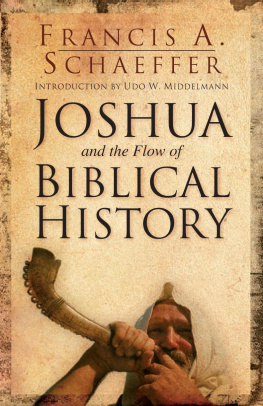

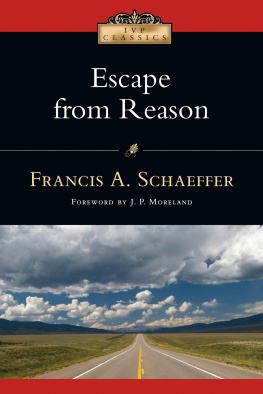

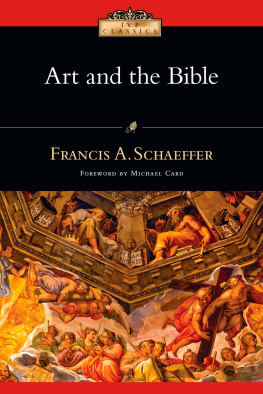
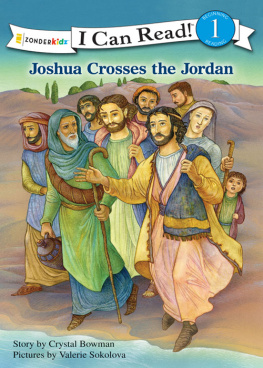

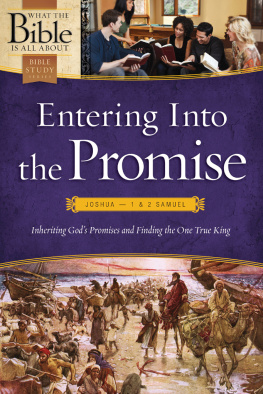
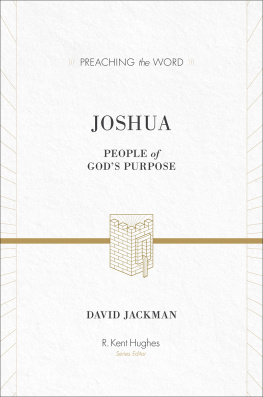
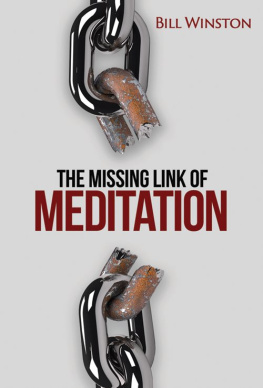
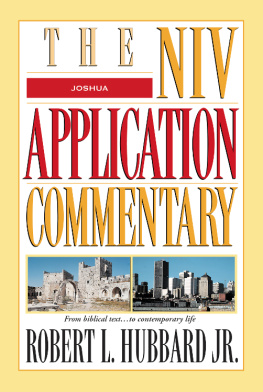
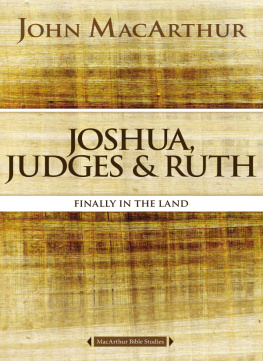
![Joshua Backfield [Joshua Backfield] - Becoming Functional](/uploads/posts/book/120483/thumbs/joshua-backfield-joshua-backfield-becoming.jpg)

